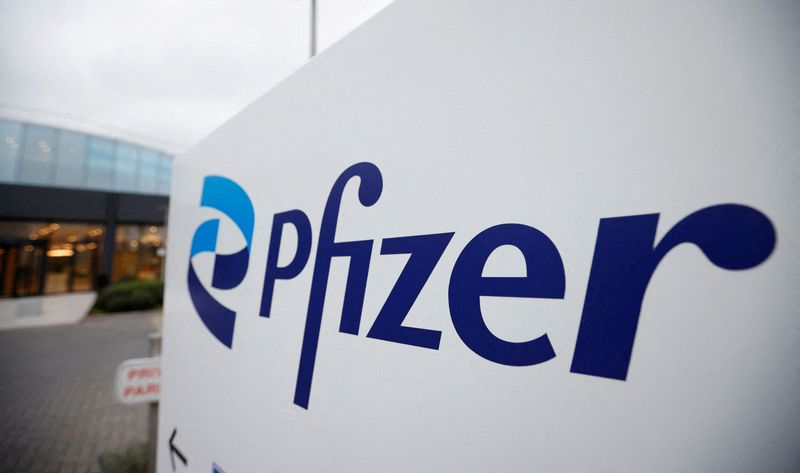Pfizer gets OK for $43-billion Seagen deal after donating cancer drug rights
2023.12.12 09:42

© Reuters. FILE PHOTO: Pfizer company logo is seen at a Pfizer office in Puurs, Belgium, December 2, 2022. REUTERS/Johanna Geron/File Photo
(Reuters) -Pfizer said on Tuesday it has agreed to donate the rights of royalties from sales of cancer drug Bavencio to address concerns from U.S. antitrust regulators related to its $43-billion deal to buy Seagen.
The drugmaker said it had now received all regulatory approvals to close the deal on Thursday, about 9 months after announcing the acquisition.
Pfizer (NYSE:) announced the acquisition in March as it braced for a steep fall in sales of its COVID-related products. Lower COVID product sales led the company to launch a program to cut $3.5 billion worth of job roles and other expenses.
After the deal closes, Pfizer said it would create a separate cancer drugs operation and split the rest of its commercial business into two divisions, one focused on the United States and the other on the rest of the world.
Chief Commercial Officer Angela Hwang would step down, Pfizer said, and Chief Business Innovation Officer Aamir Malik would become the commercial chief for its U.S. unit, while Alexandre de Germay will become commercial chief for the international unit.
The U.S. Federal Trade Commission sent a request for more information on the Seagen deal to the companies in July. The FTC declined to comment on Pfizer’s announcement on Tuesday.
Pfizer said it would donate the royalty rights for immunotherapy drug Bavencio to the American Association for Cancer Research.
The company in March signed away the development and commercialization rights related to Bavencio to its partner for the drug, Merck KGaA, while retaining rights to 15% royalty on net sales of the drug.
Bavencio brought in sales of $271 million for Pfizer in 2022.
Seagen’s shares rose 3.3% to $228.83 in premarket trading, close to the offer price of $229. The gap between the offer price and its shares has narrowed in recent months on easing fears of a prolonged antitrust review.








